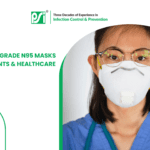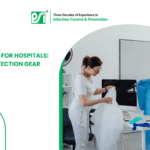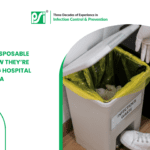Healthcare, Your Way: Embracing the World of Custom Made Kits
Digital transformation has emerged as a compelling force reshaping various industries, and healthcare is no exception. The question arises: can healthcare fully embrace this digital revolution? The answer lies in recognizing the immense potential of digital technologies to revolutionize patient care, improve efficiency, and empower individuals to manage their health effectively. With electronic health records, telemedicine, wearable devices, and artificial intelligence, the healthcare industry has the opportunity to transform the way it operates, delivering more personalized, accessible, and efficient services to patients worldwide.
As we look toward the future, experts predict that the “new normal” in 2025 will be significantly influenced by technology, presenting both challenges and opportunities for the medical fraternity. The healthcare system is expected to undergo a profound transformation, driven by technological advancements that will positively impact patient care and overall healthcare outcomes. The integration of emerging technologies such as artificial intelligence, robotics, and virtual reality is set to revolutionize medical practices, diagnostics, and treatment options. However, along with these advancements come significant challenges that need to be addressed, including data security, privacy concerns, and the ethical implications of using technology in healthcare. Despite these challenges, the increasing reliance on technology has the potential to enhance efficiency, improve access to healthcare services, enable remote patient monitoring, and facilitate personalized medicine. Embracing these tech-driven changes in the medical fraternity will require collaboration, investment, and a proactive approach to ensure that the healthcare system can adapt and leverage the benefits of technology to provide better care and support to patients.
In recent years, there has been a growing trend in healthcare toward the development and utilization of custom-made kits. These kits, tailored to meet the specific needs of patients, offer numerous benefits in terms of user experience, clinical effectiveness, and safety considerations.
Also Read: 10 Tips for Remembering When Observing a Surgery
Custom made kits are designed to provide a personalized approach to patient care. By assembling the necessary medical supplies, devices, and medications into a single kit, healthcare providers can streamline the treatment process and improve the overall user experience for patients. These kits can be customized based on factors such as the patient’s condition, treatment plan, and individual preferences. This personalized approach not only enhances patient satisfaction but also ensures that the necessary components are readily available, reducing the risk of errors or delays in treatment.
Clinically, custom-made kits offer several advantages. They promote consistency and standardization in healthcare delivery, ensuring that healthcare professionals have access to the right tools and resources needed for specific procedures or treatments. This reduces the likelihood of variation in clinical practice and improves overall treatment outcomes. Customized kits also facilitate efficiency, as healthcare providers can save time by not having to gather individual components for each patient, allowing them to focus more on direct patient care.
Safety issues are a critical consideration in healthcare, and custom-made kits can help mitigate certain risks. By carefully selecting and pre-packaging the necessary items, the chances of medication errors or cross-contamination can be significantly reduced. Each kit can be labeled with clear instructions, dosages, and expiration dates, minimizing the potential for confusion and promoting medication safety. Additionally, custom-made kits can incorporate safety features such as tamper-evident packaging, ensuring that the integrity of the contents is maintained and preventing any potential tampering.
However, it is important to note that while custom-made kits offer numerous benefits, certain safety considerations must be taken into account. Proper labeling, accurate documentation, and regular quality control checks are essential to ensure the reliability and safety of these kits. Additionally, healthcare providers must be adequately trained in the use of custom-made kits to avoid any potential errors or misuse.
In conclusion…..
Custom-made kits in healthcare have the potential to enhance user experience, improve clinical outcomes, and address safety concerns. By tailoring the contents of these kits to meet the specific needs of patients, healthcare providers can streamline care delivery, promote consistency, and reduce the risk of errors. However, it is crucial to maintain strict quality control measures and provide appropriate training to healthcare professionals to ensure the safe and effective use of custom-made kits in clinical settings.



